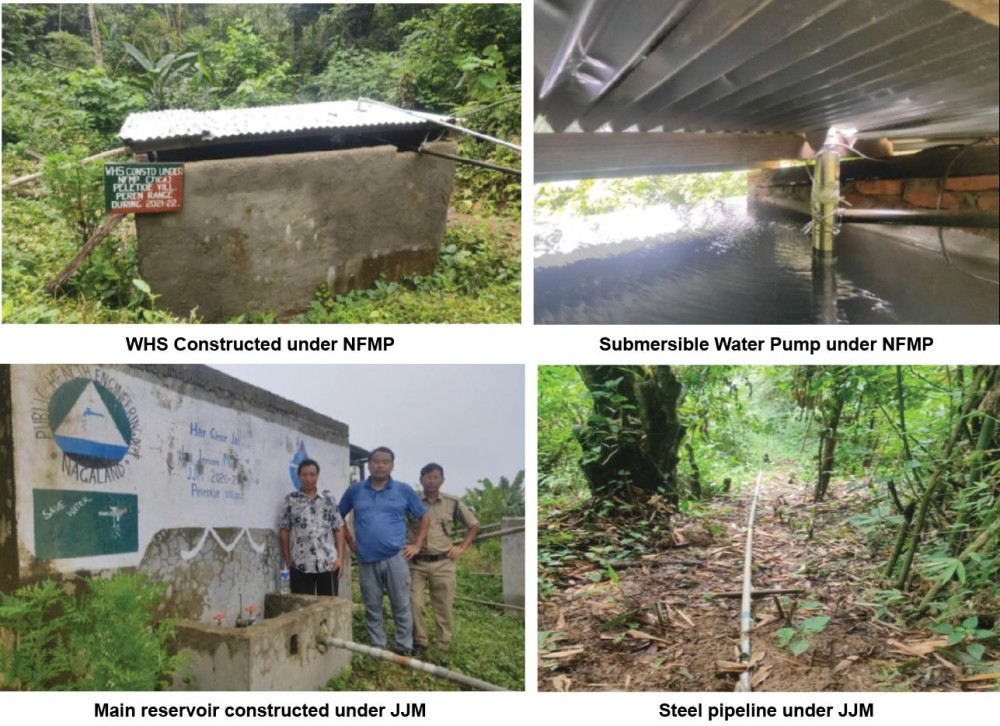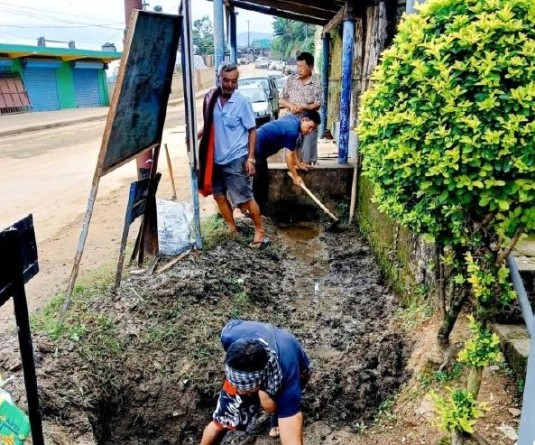
DMU Head Peren
Divisional Forest Officer, Peren District
In celebration of World Environment Day, with the theme of “Land Restoration, Desertification and Drought Resilience,” Peletkie village stands as a beacon of hope and resilience. The successful implementation of a Water Harvesting Structure (WHS) has transformed the lives of the 74 households in this small village, setting precedence for sustainable development and community-driven initiatives.
The convergence of the Nagaland Forest Management Project (NFMP) funded by JICA, efforts and supports of Peletkie village people, the Jal Jeevan Mission, and the Department of Power has led to revolutionary changes in Peletkie. This collaborative effort has resulted in the installation of compressive water supply system that addresses the acute water scarcity that plagued the village, particularly during the lean periods.
An approximately 100- meter power line was extended to the water reservoir tank ensuring a steady power supply for the water pumping system. A submersible water pump was installed to facilitate the efficient extraction and distribution of water from the reservoir. A 500- meter pipeline was laid to pump water uphill from the WHS reservoir tank to the main distribution tank. Water taps were connected to every household, ensuring direct access to clean water for all families in the village.
Before the commissioning of WHS Peletkie had only three common water distribution points, one in each of the khels (sections) of the village. The village faced severe water shortages during dry periods as the upstream water sources dried up. Women spent a significant portion of their day fetching water for domestic use, impacting their ability to engage in other productive activities.
But after the WHS work Implementation the drinking water supply in the village has vastly improved. Every household now has a direct water tap connection, ensuring reliable and convenient access to water. The project has notably benefitted the women, freeing them from the arduous task of fetching water and allowing them more time for the other activities.
The journey to this transformation began with the Participatory Rural Appraisal (PRA) exercises, where the community identifies the need for a reliable water source and the ideal site for the WHS construction. Initiated in 2022 and completed in 2023, the project required detailed planning and coordination. The Joint Forest Management Committee (JFMC) played a pivotal role in liaising with the Electrical Department to facilitate the convergence with the Jal Jeevean Mission. Being every Naga village known for their rich “Social Capital” a major contribution also came from the local residents in the form of free wages which not only helped in early completion of the work but also minimized the total cost.
The villagers of Peletkie have expressed their deep gratitude to the JFMC Executive Committee and the NFMP for their unwavering support in resolving the long-standing issue of water scarcity. The successful implementation of the WHS and the convergence thereof not only addresses the immediate need for clean water but also enhance the village’s resilience against drought and desertification, embodying the spirit of this year’s World Environment Day theme.
As we celebrate this day, Peletkie’s success story serves as an inspiring example of how community-driven initiatives, supported by collaborative efforts from various agencies, can lead to sustainable development and improved quality of life.




